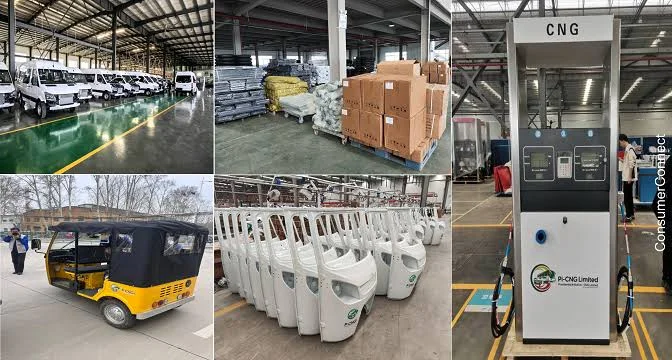The Nigerian Midstream and Downstream Petroleum Regulatory Authority (NMDPRA) has said that the country’s Compressed Natural Gas (CNG) conversion capacity increased by over 2,500 per cent in 2024.
Mr Farouk Ahmed, Authority Chief Executive, NMDPRA, said this on Thursday in Abuja, at the inaugural Petroleum Industry Stakeholders’ Forum, organised by the Ministry of Petroleum Resources.
Ahmed said that NMDPRA supported the Presidential Compressed Natural Gas Initiative (PCNGI) by stimulating 186 new conversion centers which triggered the county’s conversion capacity.
“The NMDPRA will continue to collaborate with the PCNGI to ensure deployment of CNG infrastructure in major cities of Lagos and Abuja, up to 100,000 conversions, while collaborating with states to develop Nigeria Gas Vehicles (NGVs) in other areas.
“The development of CNG as a viable alternative to Petrol has been incentivised.
“These conversions alongside new buys have raised the Nigerian Gas Vehicles population to an estimated 30,000 to 50,000 vehicles and trucks, and it continues to grow daily.
“With over 400 million dollars attracted for investment in 86 and 65 new daughters and mother stations under construction respectively, Nigeria refueling capacity has therefore risen from 20 to 56,” he said.
Ahmed said that the collaboration between PCNGI, NMDPRA and Standards Organisation of Nigeria (SON) led to the development of standards and the NGV Monitoring System expected to be inaugurated this year.
“The NMDPRA also collaborates with the SON, the National Automotive Design and Development Council (NADDC) and the National Institute of Transportation Technology (NITT) in ensuring that our mobility CNG growth is achieved in a safe and sustainable manner,” he said.
The NMDPRA boss, however, listed some challenges facing the initiative to include establishment and operation of petroleum handling facilities without proper licensing, permits and authorisations.
He listed other challenges to include poor collaborations for Open/ third party access to facilities and lack of cooperation of some operators for an effective regulatory oversight, in line with the Petroleum Industry Act (PIA) provisions.
“We implore the industry to adhere to all regulatory requirements, especially as they relate to safety, efficiency, best practices, sustainability, consumer protection and community participation.
“As we progress into 2025, the NMDPRA will continue to consolidate on its successes for enhanced regulatory oversight.
“This will include the upgrade of our laboratories for enhanced product quality analysis and referencing, inter-agency collaborations, automation and sustainability in the industry,” Ahmed said.
